
Halal Certification
|
1. European Certification Center for Halal (ECC Halal)  ECC Halal is an independent European certification center that is based in Rotterdam, Netherlands that provides for halal certification services for food production to other companies of all sizes. These services include inspection, auditing and certifying the integrity of halal food productions. ECC also continuously monitor developments within the halal market while serving new international markets by providing assistance to its partners. Address: Veldkersweg 39, 3053 JR Rotterdam, Netherlands Telephone: +31(0)88 166 06 11 Email: office@ecchalal.com Halal Certification Process 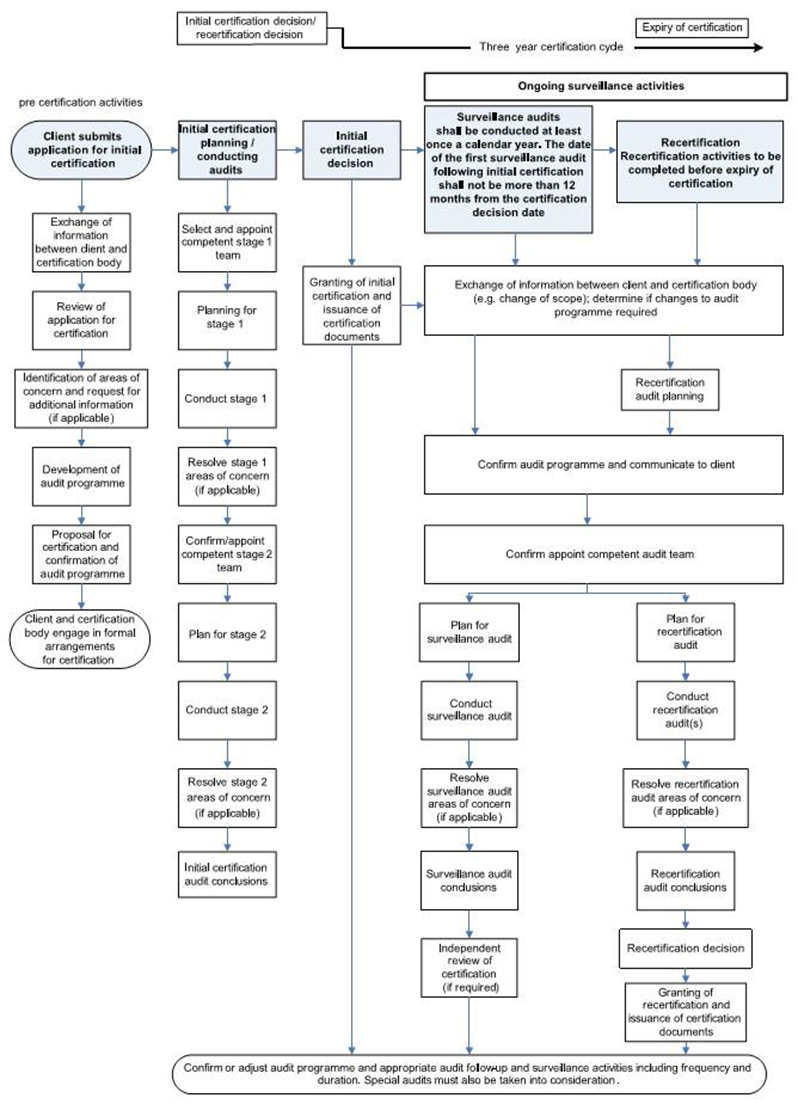
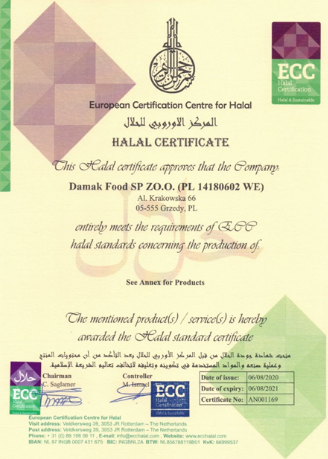 Halal Certificate by ECC 2. Halal Certification Europe (HCE)  HCE is an independent non-profit making organization that was established to formalize the investigation and halal certification of food, cosmetics and pharmaceutical products. The organization aims to assist manufacturers to set and maintain the highest standards of certification process and thus ensuring the products to be truly halal compliant. Address: Leicester LE5 5ZE, United Kingdom Tel: +44 1162-738228 Email: info@halalce.com Halal Certification Process 1. Halal Certification Application
2. Evaluation Activities
3. Halal Certification
4. Suspension or Withdrawal of Certification
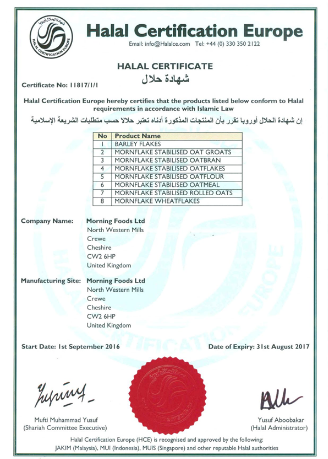 Halal Certificate by HCE 3. Halal Certification Services (HCS)  HCS is a member of the World Halal Food Council and is officially recognized from renowned bodies from all around the world. HCS established the Halal Assurance System (HAS) to ensure its customers have access to halal products and services which are Shariah compliant. a. Switzerland Contact No.: +41 61 813 30 64v Email: info@halalcs.org b. France Contact No.: +33 6 99 42 23 18 Email: france@halalcs.org c. Germany Email: info@halalcs.eu d. Spain / Portugal Contact No. +34 692 59 50 40 Email: spain@halalcs.org e. Greece Contact No.: +30 2310 474115/472984 Halal Certification Schemes HCS offers six (6) types of halal certification schemes to suit the various categories of products and services as provided below: 1. Food Products
2. Non-Food
3. Pharmasuiticals
4. Cosmetics
5. Animal Feed
6. Financials
Halal Certification Process 1. Application
2. Agreement 3. Document evaluation / assessment
4. On-site audit
5. Audit report compiling 6. Technical evaluation report 7. Legal opinion 8. Issuance of the halal certificate 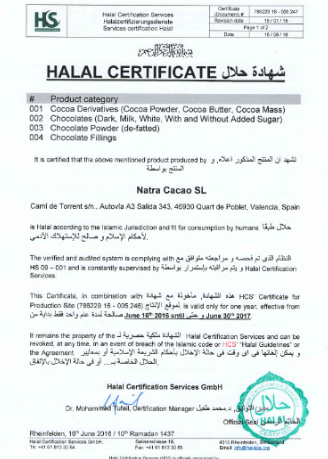 Halal Certificate by HCS 4. Halal Food Council of Europe (HFCE)  HFCE is a registered non-profit organization established since 2010 in Brussels, Belgium, dedicated to halal certification of food, non-food and other materials. The certifications provided by HFCE meet the requirements of the halal standards for slaughter houses and different food and nutraceutical ingredients as well as products. The organization is also active in community services relevant to halal education, charity and food assistance to the needy in European countries. Address: Rue de la Presse 4, 1000 Bruxelles, Belgium Contact No.: +32-2227-1114 Halal Certification Process 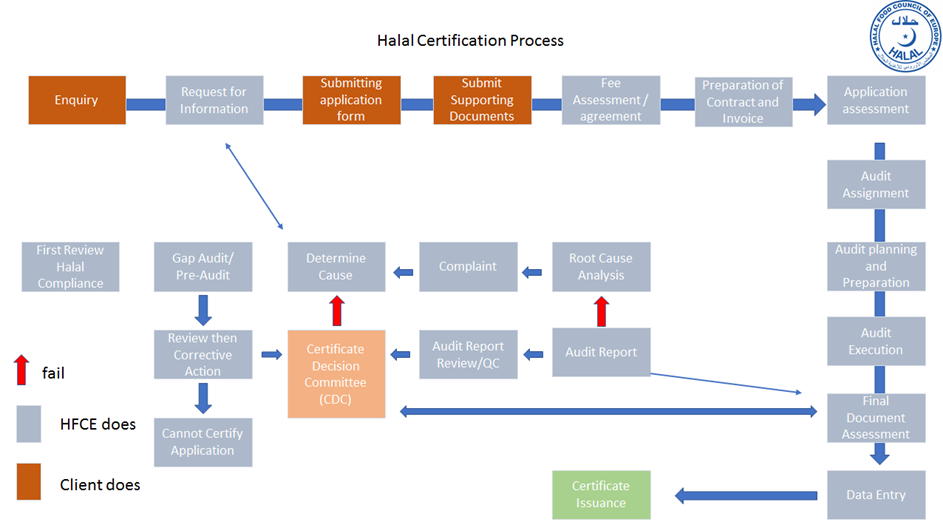
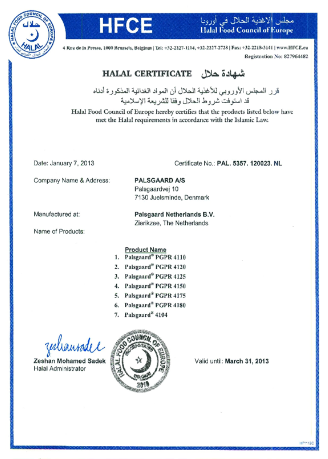 Halal Certificate by HFCE 5. The European Halal Certification Institute (EHZ)  EHZ is a non-profit organization sponsored by the Islamic Community Millî Görüş (IGMG). EHZ advises the food industry, checks their products and production systems and certified them. EHZ certifies food, textiles, chemicals, pharmaceuticals and cosmetics industry. Address: Colonia-Allee 3 51067 Cologne Contact No.: +49 221 – 942 240 350 Halal Certification Process 1. In order to obtain Halal certification, the manufacturer or company submits an application to the EHZ. 2. The applicant self-assessment, application documents and initial information are sent to the applicant. 3. After the applicant's self-assessment has been completed and the required documents have been sent back to the EHZ, an appointment will be made for the initial meeting including a site inspection. 4. The inspection and inspection include:
5. All information and documents that were collected before, during and after the site inspection are processed and analysed. The final assessment and approval is made by the EHZ's Academic Council. 6 Evaluation result:
* The final Halal certification is preceded by the signing of a written Halal certification agreement. The Halal certificate is then issued. This is normally valid for one year. 7. After the Halal certificate has been issued, announced and unannounced audits are carried out at different intervals, depending on the company sector. 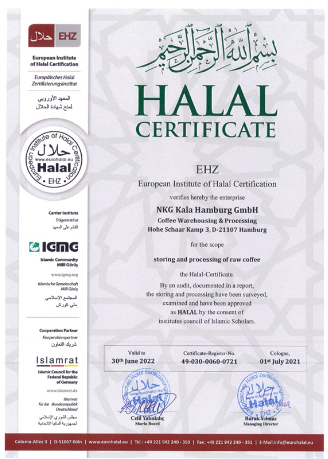 Halal Certificate by EHZ References: |